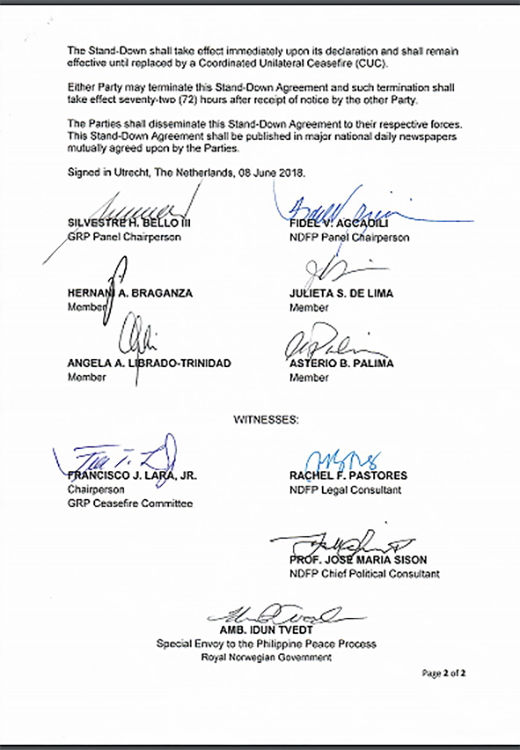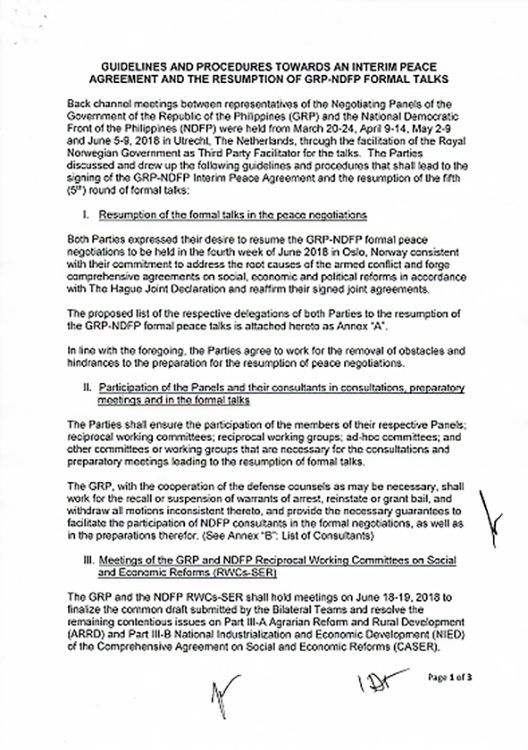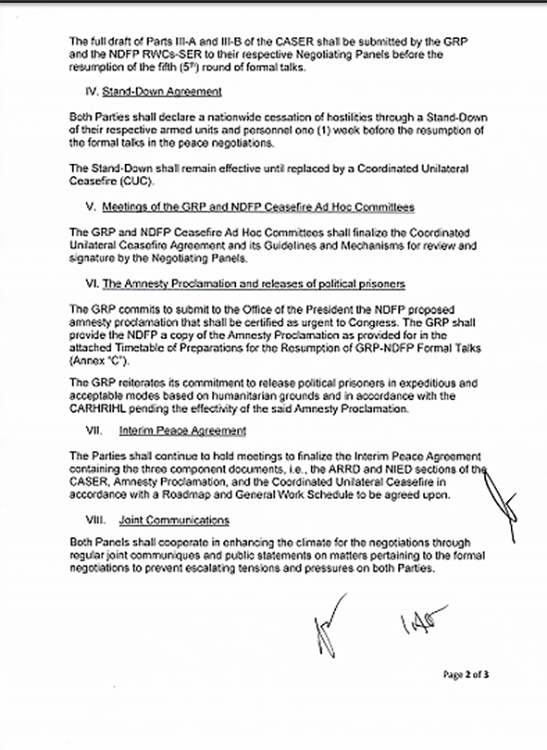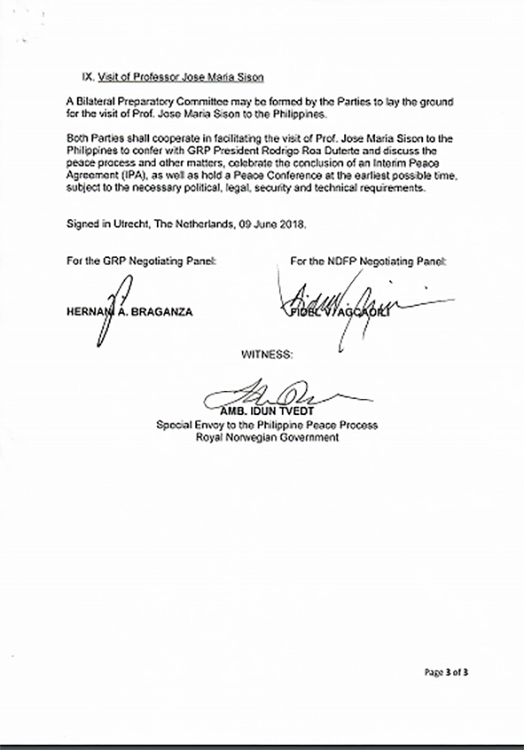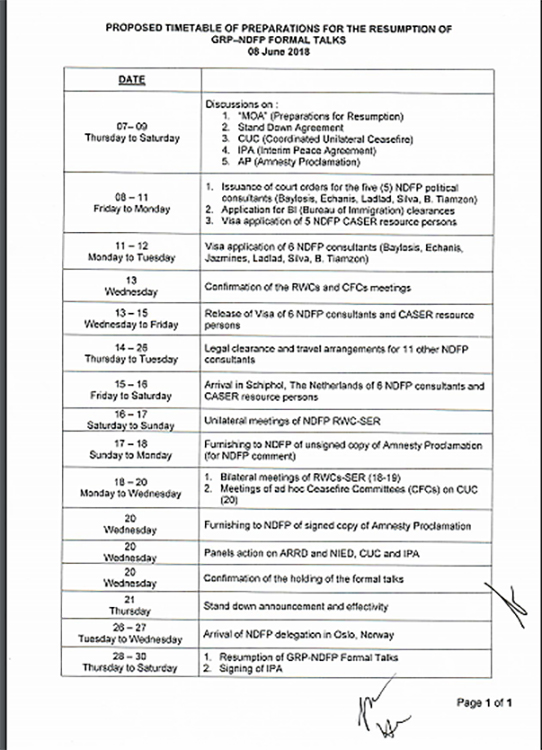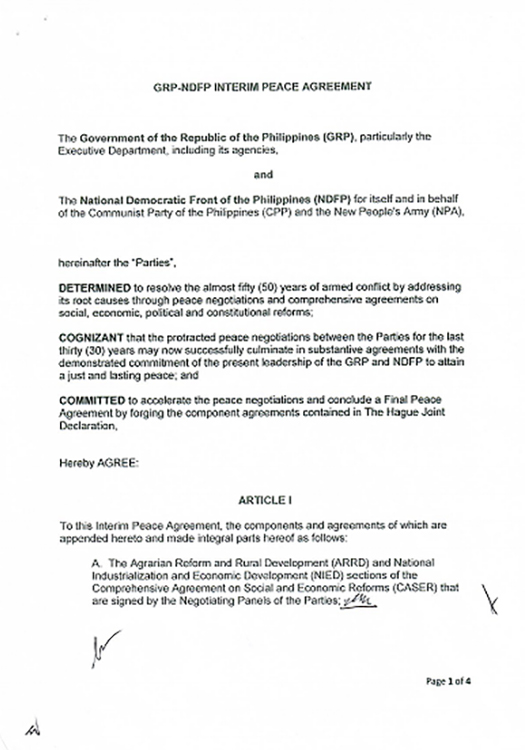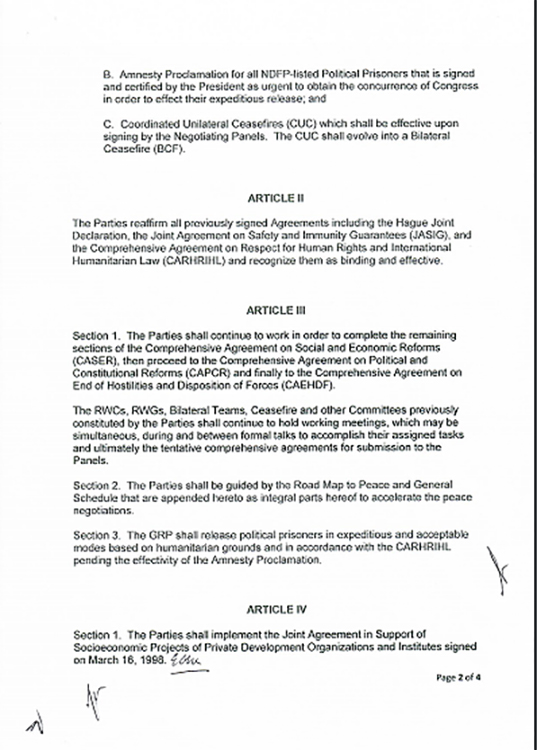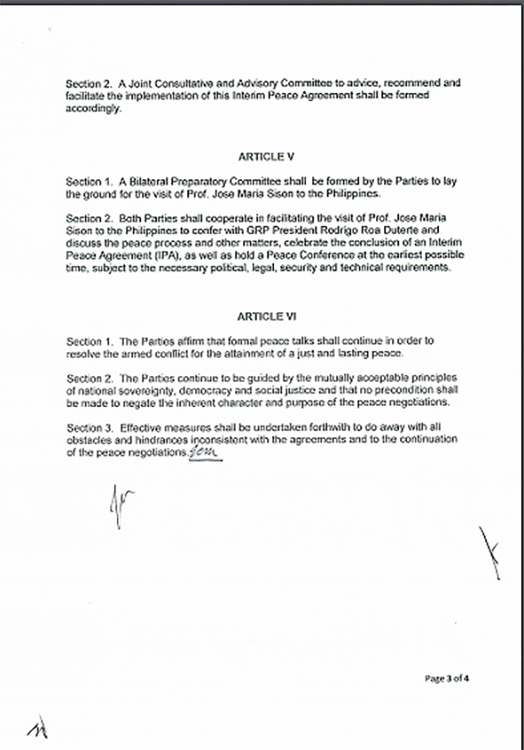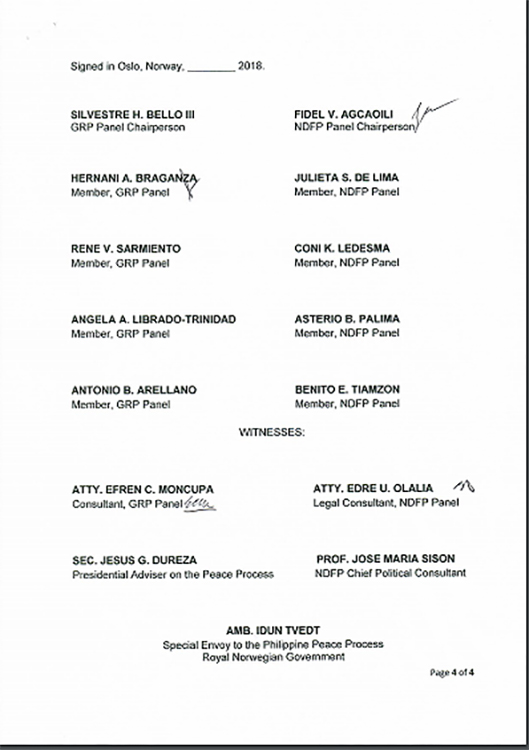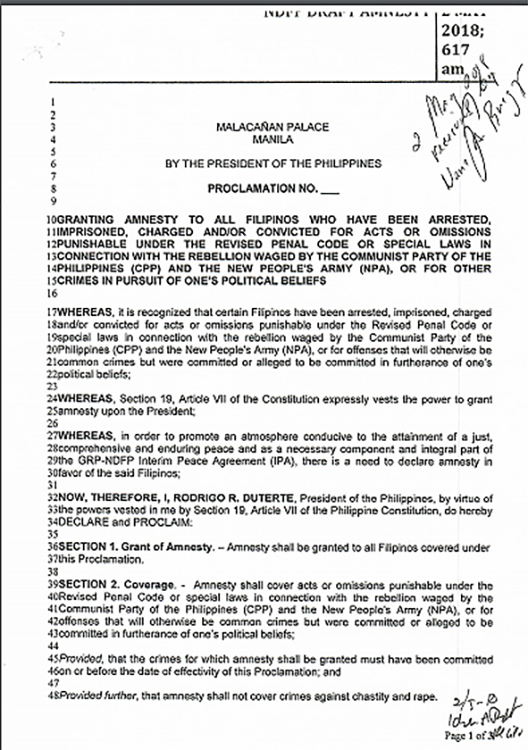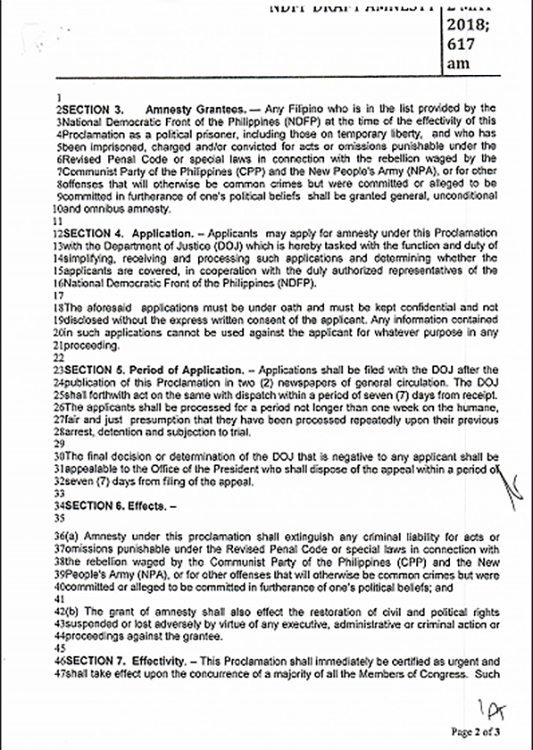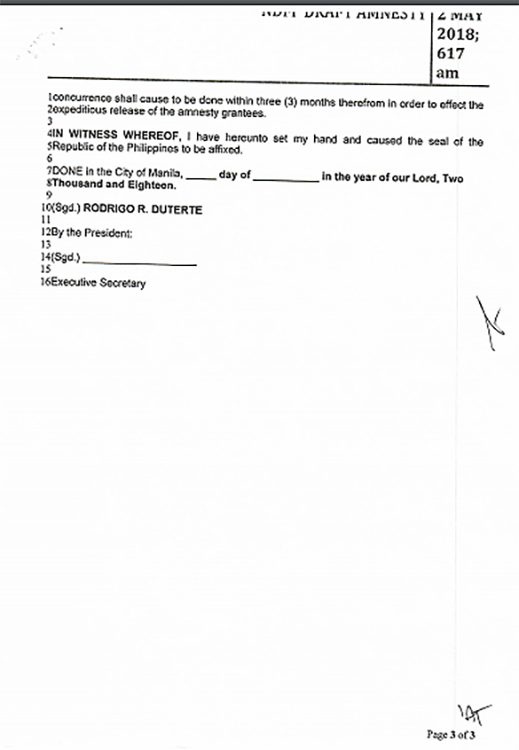Sison angry at planned dismissal of talks Third Party Facilitator
An angry Jose Maria Sison called President Rodrigo Duterte a “political swindler” who is bent on sabotaging the peace negotiation between the government and the National Democratic Front of the Philippines (NDFP).
Reacting to presidential spokesperson Harry Roque’s announcement Monday Duterte no longer wants a third party facilitator in the peace talks between the Government of the Republic of the Philippines (GRP) and the NDFP, Sison said the president is “willfuly and maliciously killing the peace negotiations by breaking the standing GRP-NDFP agreement on foreign neutral venue and dismissing the third party facilitator.”
“He is inflaming the civil war in the Philippines to justify his fascist dictatorship. He really does not want to have the peace negotiations,” Sison said of Duterte.
In a press conference in Malacañan, Roque said Duterte wants wants the peace talks to be held in the Philippines and not in Norway whose government has served as third party facilitator to the talks for close to two decades already.
The Royal Norwegian Government (RNG) is the Third Party Facilitator of the GRP-NDFP peace process since 2001, spending millions of Euros for the hosting and travel requirements of negotiators and staff of both parties through the years.
Roque said there is no need to hold the talks abroad, adding the government has a peace panel who has “the authority to fix the logistics.”
Asked who would facilitate the peace talks in the Philippines, Roque said, “Perhaps there would no longer be one.”
Roque added that the government would comply with whatever legal process must be undertaken to ensure that the peace negotiations will be held in the Philippines.
According to the GRP-NDFP Joint Agreement on Safety and Immunity Guarantees (JASIG) of 1995, however, the parties agreed that the negotiations must be held in a neutral venue, which at the time was in Brussels, Belgium.
In their Oslo Joint Statement of February 14, 2004, the GRP and the NDFP issued an annex entitled “The Role of the Third Party Facilitator,” which was already The Royal Norwegian Government at the time.
Roque said that Duterte could not understand why the talks have to be held in Norway,
Sison however said the NDFP will never submit itself to surveillance, control and duress by Duterte’s “bloody regime and his military and police butchers and death squads,” adding there is a reason why both parties signed the JASIG mandating that talks should be held in a foreign neutral venue.
NDFP earlier said its negotiators and staff were arrested, tortured and killed when the first GRP-NDFP peace talks held in the Philippines collapsed in 1987, prompting the NDFP to insist on a foreign neutral venue when the negotiations resumed under GRP President Fidel Ramos in 1992.
“[Duterte] is hell-bent on scapegoating the CPP and NPA to justify his methods of fake surrenders and mass murders and enable him to impose on the people martial law nationwide and fascist dictatorship,” Sison said. # (Raymund B. Villanueva)


